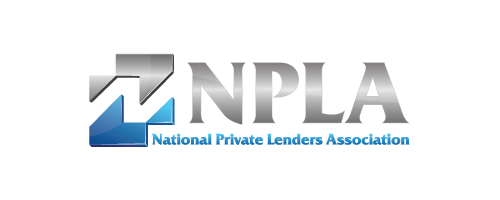Coronavirus: The Impact on Financial Markets and Private Lending

The year 2020 has been shocking to the world’s citizens and financial markets. As the Coronavirus-driven economic crisis continues, we find ourselves looking for guidance.
We at the NPLA, believe that out of chaos comes opportunity.
Changes in the market are unfolding rapidly, and it is essential to have access to the most current and accurate information to help your business succeed. It is important to understand the risks and the potential opportunities that lay ahead for the private lending industry.
Past Financial Crises
The first three months of 2020 had specific components of infamous past financial crisis events seemingly all rolled into one.
- The Bank Panic of 1907 (Knickerbocker Trust in NYC, especially)
- The Great Depression (1929 – 1939)
- The Oil Shock of 1973 – 1974 (deflation, not inflation this time)
- The Savings and Loan Crisis (1986 – 1995)
- The Credit Crisis (2007 onward)
In these dire financial years, people who worked in the financial industry (investors, bankers, wealth advisors, private money lenders, etc.) saw trust companies, banks, insurance companies, stock market firms, energy companies, hedge funds, the entire subprime mortgage industry, and tens of millions of homeowners and commercial real estate owners lose their properties to foreclosure or bankruptcy.
2020 Financial Challenges
Here’s a summary of some eye-opening financial data that occurred within the first 90 days of the year:
- According to the Department of Labor, Americans have filed nearly 10 million jobless claims in the last two weeks alone. That corresponds to roughly 6% of America’s 165 million person workforce, resulting in a 9.5% unemployment rate.
- Fannie Mae and Freddie Mac issued payment deferral plans for up to 12 months for borrowers. Also, landlords and lenders were asked to suspend evictions and foreclosures for at least 60 days, according to the Federal Housing Finance Agency.
- There’s talk that minimum FICO credit score guideline requirements for FHA loans up to 96.5% LTV may be increased from a low of 580 to a new low of 660 or higher FICO scores for the best rate and term options.
- Wells Fargo, US Bank, Citibank, JP Morgan Chase, and other prominent banks all agreed to defer mortgage payments for at least three months.
- The Dow Jones stock index fell from a peak high near mid-February of 29,551.42 to a market low of 18,213.65 on March 23rd, which is more than a 38% overall percentage loss in just over a month.
- Some national residential wholesale mortgage lenders may be facing a “cash crunch” while being stuck with millions or billions of dollars’ worth of mortgage loans that they can’t sell off to secondary market investors, at least in the short-term.
- The Non-QM (Qualified Mortgage) and Jumbo Mortgage markets effectively “froze up” in March due to the perceived risks.
The Dow Jones stock index fell from a peak high of 29,551.42 on February 12th to a market low of 18,213.65 on March 23rd, which is more than a 38% overall percentage loss in just over a month. Of the 10 all-time biggest daily point losses ever for the Dow Jones index, eight of these days took place in either February or March in 2020.
Navigating the Crisis: How the NPLA Can Serve You
As a result of the adverse financial situation, it is your perceptions and actions that may best determine whether you and your business will succeed. Who can step in to replace disappearing conventional bank financing, FHA, and Non-QM mortgage loan options during crisis periods for non-owner occupied and commercial properties?
Answer: Private Mortgage Lenders
During this time of uncertainty, the NPLA is hosting bi-weekly membership calls. It is a critical time to engage in discussions with our membership base and provide assistance and communication. During these meetings, our members are able to share their questions and concerns and learn from industry experts.
Please contact our offices if you are interested in joining our next call.
Important Takeaways You Can Gain from NPLA Conference Calls
- Best Practices for Private Lenders During Times of Uncertainty
- Updates on State and Federal Guidelines due to Coronavirus
- How to Mitigate your Construction Risks
- How to Reach an Agreement with your Borrowers
- Shifting Standards due to Market Changes
- Temporary Adjustments: What changes are the major players in our industry making?
- Updates on Guidelines for Appraisers
For your Review: Federal Guidelines Implemented In March 2020
Fannie Mae
- Single-Family Lender Letter (LL-2020-04), Impact of COVID-19 on Appraisals
- Single-Family Lender Letter (LL-2020-03), Impact of COVID-19 on Originations
- Single-Family Lender Letter (LL-2020-02), Impact of COVID-19 on Servicing
- Fannie Mae issues updated Multifamily lender guidance
- FHFA Statement: This move is intended to reduce transaction delays due to appraisers unable or unwilling to enter properties to conduct interior inspections. Under the guidance, lenders will be allowed to use desktop appraisal and exterior only appraisals for purchase transactions through May 17th, 2020.
Freddie Mac
- Selling Guidance Related to COVID-19
- COVID-19 Relief Plan Affecting More than 4 Million Multifamily Apartment Renters
- Enhanced Relief for Borrowers Impacted by COVID-19
In addition to the above provisions, it is important to follow state mandates as they become available.
Our office will continue to provide updates.
